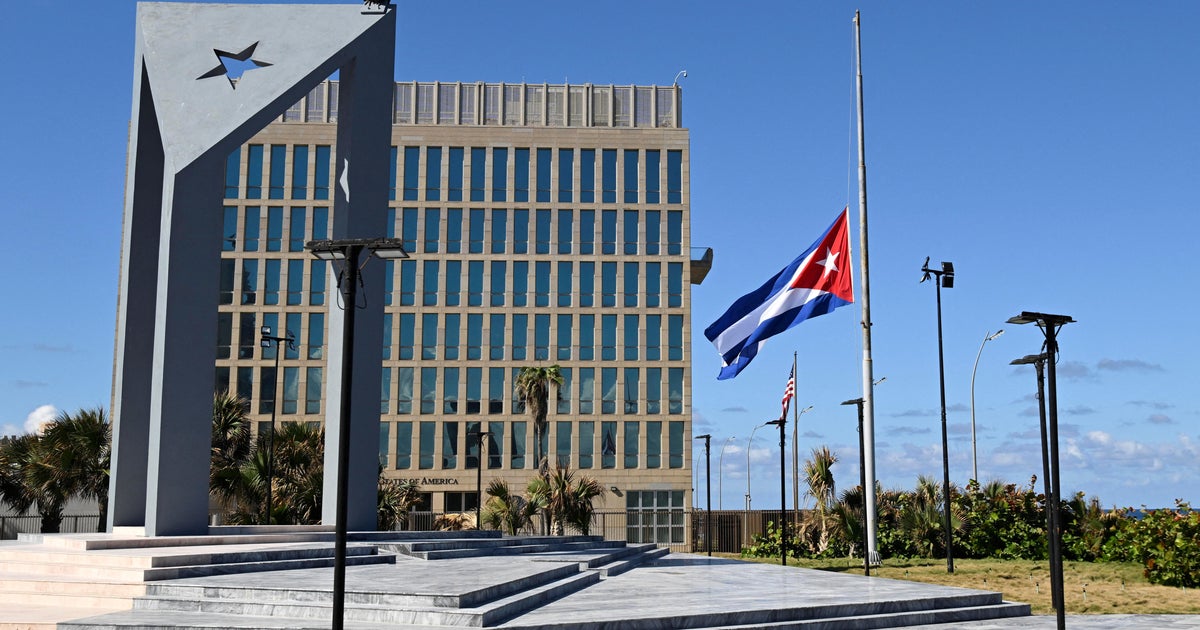Hundreds of women in national security sign anti-assault letter
More than 220 women who are current or former national security personnel have signed a letter saying have been victims of sexual assault and harassment or know someone who has. They say the impact of the harassment is pervasive that national security has been harmed.
"If folks haven't been directly affected they know somebody who has and that whisper network has become more than a whisper. It's become a roar," says Jenna Ben-Yehuda, a former State Department employee, who was one of the women that drafted the letter.
The letter is titled #metoonatsec, a play on the popular #metoo campaign against sexual harassment on social media.
As the letter's signatories saw the recent wave of horrific stories about women in politics, media and entertainment being harassed and assaulted by powerful men, they felt that they needed to speak up as well.
"We see that this is an issue that doesn't just affect Hollywood, it doesn't just affect Silicon Valley, it affects women everywhere," says Ben-Yehuda. "Let's leave the armor for the battlefield because women would really like to get back to work."
Ben-Yehuda worked with a small group of women to draft the letter. They then circulated the letter and published it a week later. She says that it took little effort to get women to sign on to the letter because so many wanted to be involved.
"It was so easy because every woman has a story and there was so much urgency behind folks really wanting to talk about this issue," explained Ben-Yehuda. She herself was in the foreign service for 12 years and feels close to her circle of female foreign service officers.
Women occupy only 30 percent of roles in national security senior leadership. That is a low number given the relative equal share of entry-level positions that women make up.
While there are many reasons women leave national security roles, sexual harassment is part of this puzzle, according to the women who signed the letter.
Multiple women told CBS News that they filed claims of sexual harassment or assault as State Department employees that did not result in any repercussions for the perpetrator.
"There is a kiss up, kick down system," explains a former State Department employee who says she was sexually assaulted by her boss, in two separate incidents, when she was working overseas. She formally filed a complaint, despite being encouraged not to rock the boat.
She was later told that her perpetrator was surprised when the allegations were brought to his attention. He kept his job and was later promoted. She says she received a negative review that she believes was a death stamp on her career.
There are still women who were unable to sign the letter for fear of retribution, but they are being encouraged to come forward by signatories.
"The institutions to which we belong or have served all have sexual harassment policies in place. Yet these policies are weak, under enforced, and can favor perpetrators. The existence of policies, even good ones, is not enough," the letter states.
The signatories believe that the pervasive nature of sexual harassment has held women back or driven them away from this kind of work.
Ambassador Gina Abercrombie-Winstanley, who signed the letter, recalls when a member of Congress tried to kiss her as they were reviewing policy in the late 1990s. At the time he was more than 20 years older than she was.
"I mean it was clear that it wasn't part of the policy discussion. And I said 'very kind of you, no thank you,'" she recalls. She says this was one of multiple cases of sexual harassment that she faced while she was in government.
She believes that the behavior so pervasive that women cannot focus on their jobs. Women are thinking about managing a situation with a male colleague, which means they are not thinking about the job at hand.
"You're not getting the best out of the people that you've hired and were considered to be the best and the brightest," Abercrombie-Winstanley says.
Some women point out that the national security realm is particularly susceptible to inappropriate sexual behavior going unreported, or being hidden behind a cloak of silence. That is because women are often in hostile environments, such as war zones, are far from their family and friends who they would tell these stories too.
Additionally, they can find themselves oftentimes in classified situations where cell phones are not allowed, which makes it hard to record and provide evidence for certain allegations.
"I'm of a generation where my mother raised me to understand this was part of the cost of being in a male dominated profession," explains Abercrombie-Winstanley.
The Ambassador, who has been in the foreign service for over 30 years, wants things to be different for the next generation. That generation includes her daughter and the many women she has mentored.
"I hope that women never have to leave a job, never have to leave an embassy or a battle space because they don't feel safe," says Jenna. "So to all of those women we say we hear you and we are listening and we're calling on people to make it stop."
The women know it will require departments to get on board if change is to happen. The women are asking for multiple channels to report incidents without fear or retribution and an external collection of the data that can be published anonymously. They also want mandatory exit interviews for women, strengthened sexual assault training, and commitment from departments' leadership that the behavior is unacceptable.
Agencies are responding to the outcry. The Department of Homeland Security told CBS News they are reviewing their policies and policy implementation. Additionally, the State Department and the White House are reviewing their existing sexual harassment policies.
The State Department also sent a note week reminding employees to be aware of the policies surrounding sexual misconduct.
"Employees are expected to exercise good judgment and avoid engaging in sexual activity that has the potential to interfere with their or the Department's effectiveness while serving overseas," it reads. The note also says that employees have been "disciplined" -- even in cases when the action does not meet the legal definition of sexual harassment -- for making off-color remarks, inappropriately touching, standing too close or looking someone up and down.
USAID said that they review their harassment policies on an ongoing basis.
"The goal is to reaffirm that all USAID employees and contractors not only know how to use the anti-harassment policies and program, but feel comfortable in doing so without fear of retaliation," said a USAID spokesperson in a written statement.
Both the Pentagon and the Director of National intelligence stood by their existing policies.
"Sexual harassment violates the responsibility of [Department of Defense] military and civilian personnel to treat each other with dignity and respect," a Pentagon spokesperson told CBS News,
"Not only that, it jeopardizes combat readiness and mission accomplishment, weakens trust within the ranks, and erodes unit cohesion. The [Department of Defense] maintains a 'zero-tolerance policy' for sexual harassment and is firmly committed to eliminating it from our ranks."





